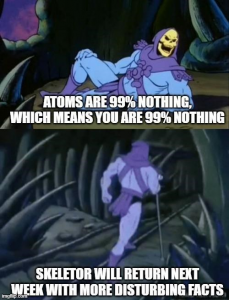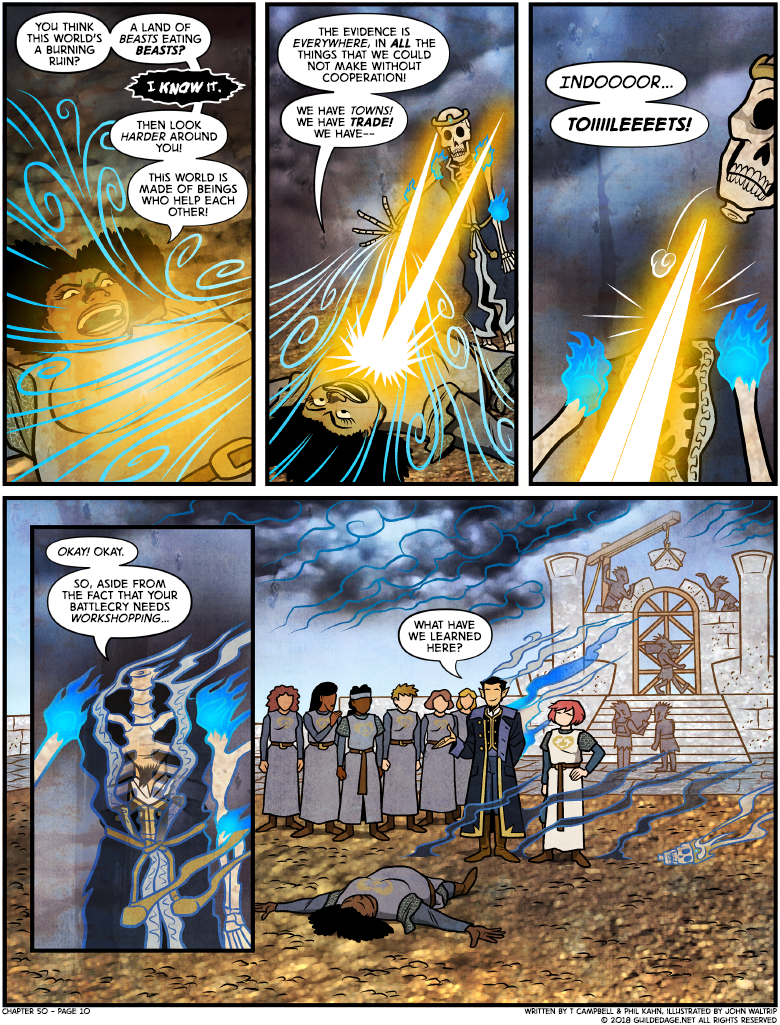Annotated 50-10
 It’s not too hard to guess where E-Merl got the inspiration for Phalanx. It’s one thing for Flo and me as writers to take our darker feelings and channel them constructively into characters in ultimately uplifting narratives. But here we took it to the next level and had E-Merl do that with a character he created. Everything Phalanx says is something he’s muttered in one of those dark nights after Rachel died.
It’s not too hard to guess where E-Merl got the inspiration for Phalanx. It’s one thing for Flo and me as writers to take our darker feelings and channel them constructively into characters in ultimately uplifting narratives. But here we took it to the next level and had E-Merl do that with a character he created. Everything Phalanx says is something he’s muttered in one of those dark nights after Rachel died.
Daisy’s argument, despite the silly cadence of its conclusion, is still meaningful to me. It’s something I bring up now and then when my wife and I are struggling with negativity (I had to do it more often in the Trump days, and who knows how often I’ll have to do it in the years ahead).
As I’ve said elsewhere, extreme cynicism is just naivete with a frown. It’s as ignorant as the most pathetic Pollyanna to claim there are no forces working to make things better for everyone or to say that those forces have no power. That doesn’t mean a guaranteed win and certainly not a guaranteed win every time…as I indicated above, I expect rough times ahead, probably rougher than some people even imagine. But ignorance won’t help with that, especially the smug kind of ignorance that tells itself it’s smart. Extreme cynicism marries that ignorance with hope-is-for-fools sentiment, and it’s often what real-life villains use as their creed. E-Merl is wise to train Rachel’s spiritual children to fight it.
FB: The optics on it can be awkward, but it’s a reliable finishing move to get your opponent in a neck scissors.











As battle cries go ‘INDOOR TOILETS!’ beats ‘SPOON!’ in my book.
Both are pretty great inventions, tbh
Having destroyed everything they intended to destroy, it seems that trolls are now builders.
Thus ends Bad Papyrus’ reign.
“Neck scissors” is an interesting way to describe what are obviously boob lasers.
I really can’t decide if I love “INDOOOOOR TOILLEEEETS” or the booby laser scissors more. They’re both just such an incredibly silly way to win a fight. Also Daisy has amazing pec control to be able to aim her booby lasers like that. She deserves a medal for making that old “the Slayers” joke into a weapon.
Trolls have become builders, just like Penk envisioned.
Neat background detail from John with an arch being constructed properly, with wooden centering.